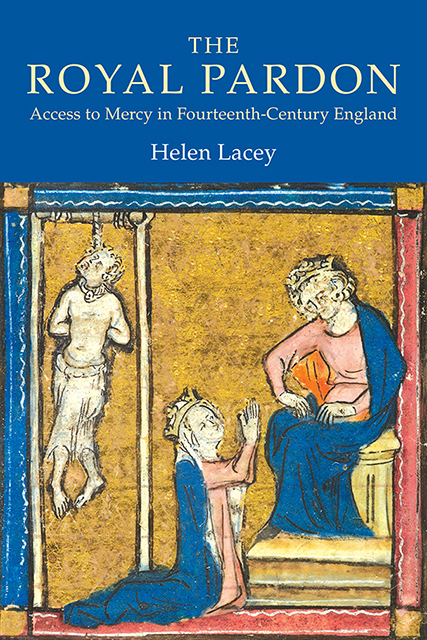Chapter Ten - Pardoning and Revenge: Richard IIs Tyranny
Published online by Cambridge University Press: 07 March 2023
Summary
The general pardons discussed so far were used to promote reconciliation in the face of disunity or rebellion. However, in 1398 Richard II subverted the principles of granting pardon, by using it as a tool of accusation and incrimination. The last three years of Richard's reign have often been set apart, in the historiography, as a distinct period of tyrannical rule. In the summer of 1397 the king ordered the arrest of his long-standing political opponents, the Lords Appellant, and two months later he convened his so-called ‘Revenge Parliament’, which provided the forum for their public trial and conviction. This heralded Richard's intention to impose a new personal agenda on the polity of the realm. He sought to intimidate the Lords and Commons with a display of force: 2,000 members of his personal retinue of Cheshire archers were ordered to surround Parliament. He then went on to extort concessions from the Lords and Commons, which effectively curtailed the powers of Parliament, and announced a pardon, but declared that certain, unnamed persons would be excluded from its protection. For the chronicler Thomas Walsingham these events were a portent of worse to come, and he made the well-known comment that, in the summer of 1397 the king ‘began to tyrannise and burden his people’. Historians have generated a considerable body of scholarship in their attempt to elucidate the events that led ultimately to Richard's deposition. However, one central element of Richard II's ‘tyranny’ has been overlooked: namely his view of the role and significance of the royal pardon. Beyond the drama of parliamentary proceedings, scant attention has been paid to the way in which Richard actually used the royal pardon in these years to bring pressure to bear on his political opponents. While the chroniclers dwell on the set-piece show trials of Arundel and Warwick, they allude only briefly to events occurring outside the limelight of Parliament. Walsingham refers to a vague atmosphere of suspicion, and to secretive activities carried out by royal agents in order to secure forced loans for the king. The administrative records of government, however, contain a whole series of veiled references to arrests, imprisonments and council meetings, which, when pieced together, reveal a sequence of events revolving around the use of the royal pardon as a political bargaining tool. Richard was using the very concept of pardon to justify his move against the supporters of the Lords Appellant in the autumn of 1397.
- Type
- Chapter
- Information
- The Royal Pardon: Access to Mercy in Fourteenth-Century England , pp. 160 - 175Publisher: Boydell & BrewerPrint publication year: 2009



